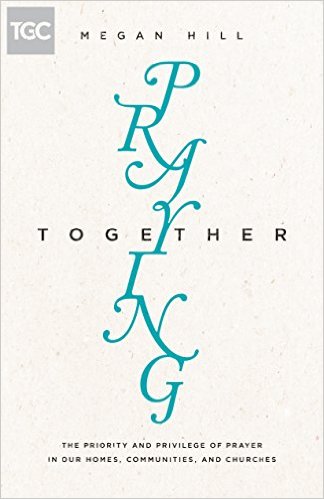A Hindu and a Christian walked into our house. These men were not the first line of a joke but new friends—students from India now living nearby. We invited them to dinner. We ate chicken biryani together and exchanged stories of family, and travel, and curry so hot you can’t breathe.
We also prayed. We prayed before the meal, thanking our Lord, the giver of daily bread, and we prayed during our regular time of family worship after the meal. They were in our house for only a few hours, but they left knowing our love for them and, more importantly, our love for our Lord.
Though many of us pray regularly with our spouses and children, we sometimes forego that practice when guests are in the home. If we do, we miss a valuable opportunity. Whether we’re welcoming friends for coffee or hosting them for a weekend, our prayers together refresh the hearts of saints and stand as a testimony to the unconverted.
Praying Together as Hospitality 
When our guests are fellow Christians, praying together ought to be an element of the hospitality God repeatedly commands us to offer (Rom. 12:13; Heb. 13:2; 1 Pet. 4:9). As 19th-century minister and theologian J. W. Alexander wrote:
We are, perhaps, ready enough to make our guests welcome, to provide for their lodging and refreshment, to show them the wonders of our environs, and to invite friends for their entertainment; but besides this, we owe a duty to their souls.
For our believing guests, praying together provides a home away from home. They’re not able to pray with their own families, so we invite them to pray with ours. Conversely, nothing could be less welcoming than sharing with guests the physical provisions of our home while thoughtlessly excluding them from its source of spiritual nourishment.
Praying before mealtimes is probably the most obvious way to pray together with guests. It was certainly the practice of the early church who “received their food with glad and generous hearts” (Acts 2:46), and we shouldn’t neglect it either. Every time we break bread we thank its giver, whomever our dinner companions are.
Praying Together as Evangelism
Our prayers stand as an encouragement to believing guests and a living sermon to unbelieving ones. Jesus prayed before his post-resurrection meal with two of his disciples (Luke 24:30), and Paul prayed before his shipboard meal with 200 pagan sailors (Acts 27:35–37). When the church in Acts devoted themselves to eating and praying together, “the Lord added to their number day by day those who were being saved” (Acts 2:47). Who knows what effect our sincere acknowledgment of God will have on those with whom we share a meal?
We also ought to invite guests to our regular times of family prayer. This is a unique opportunity for gospel witness to unbelievers. Often in our evangelistic conversations with non-Christians, the terms of our discussion are dictated by them: “Do you really think homosexuality is a sin?” “What about abortion?” “Are you against birth control?” “What do you think about evolution, climate change, and the church’s view of women?” Each of these questions presents valid issues to which the Scripture has substantive answers.
But none of them is the most important issue: the responsibility of every human being to submit to the triune Lord. In our homes and at prayer, we have unique freedom to set the terms of engagement, to focus our guests on the true priorities of a Christian’s heart. Having nourished our friends’ bodies, we offer bread for their soul. As we pray, we proclaim to our guests—and remind ourselves!—that we are each spiritual beings who owe worship to God and approach him only through the blood of Christ.
Just as the prayers of Stephen doubtless rang in the ears of Paul (Acts 7:58–60; 22:20), and then the prayers of Paul doubtless rang in the ears of the Philippian jailer (Acts 16:25, 30), the testimony of our family prayers may lead to the salvation of many. We may one day find our past dinner guests seated beside us at the great wedding feast of the Lamb.
Brothers and sisters, let us pray.
Editor’s note: This excerpt is adapted from Megan Hill’s new book, Praying Together: The Priority and Privilege of Prayer in Our Homes, Communities, and Churches (Crossway, 2016), released in connection with TGC’s Women’s Initiative. Also, don’t miss our upcoming National Women’s Conference, June 16 to 18 in Indianapolis. Hill will lead a workshop on “When Women Pray Together.” Workshops are filling up fast, so register now.
Is there enough evidence for us to believe the Gospels?
 In an age of faith deconstruction and skepticism about the Bible’s authority, it’s common to hear claims that the Gospels are unreliable propaganda. And if the Gospels are shown to be historically unreliable, the whole foundation of Christianity begins to crumble.
In an age of faith deconstruction and skepticism about the Bible’s authority, it’s common to hear claims that the Gospels are unreliable propaganda. And if the Gospels are shown to be historically unreliable, the whole foundation of Christianity begins to crumble.




































